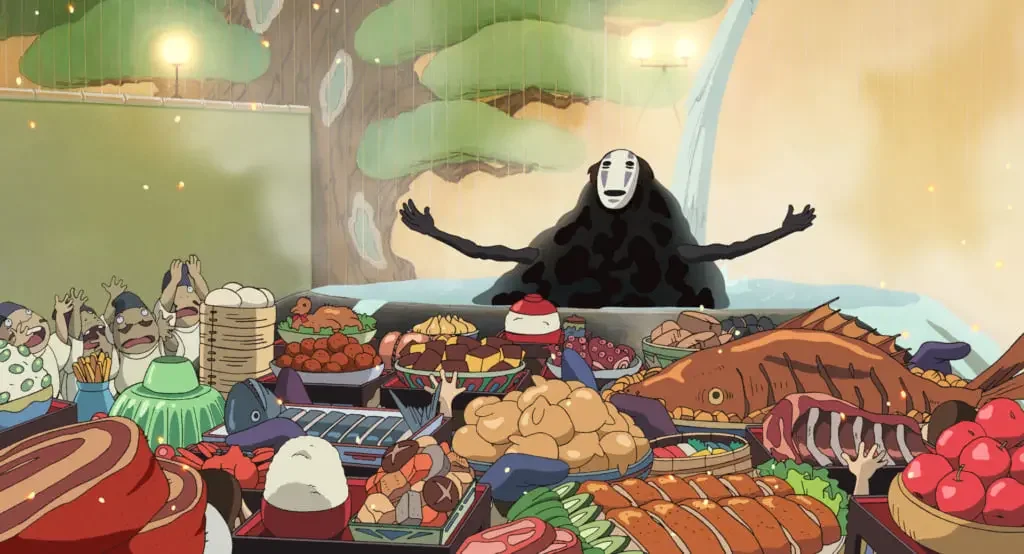How Food Can Kickstart Worldbuilding
/So, what is worldbuilding?
Think of some of your favourite fictional worlds. What made them so immersive? You probably can’t put your finger on one thing. Rather, it’s everything in the world working together, making it believable. Every detail knits together to strengthen the narrative and suspend disbelief, to whisk your audience away to a land of make-believe of your creation. That is worldbuilding. Through these posts, we here at Brick by Brick aim to give you the tools to create immersive worlds of your own—regardless of experience.
The spice must flow
One place you may wish to begin worldbuilding is with one of society's foundations: food. We all must eat. Food gives us insight into not only a character’s preferences, but also their geography, culture, and status. The agricultural revolution changed the way humans live and function forever, taking us from wandering nomadic tribes to settled peoples with growing cities.
Not only should you think of what you want your society to eat, but also how they get the food in the first place. This can help inform how your society is structured from top to bottom. Try asking yourself some of the following questions to begin thinking about your world’s food source:
What kind of plants and animals are native to your world?
Is agriculture/farming the norm?
If not, perhaps fishing, hunting, gathering, or pillaging? How might these alter how people interact with one another?
Does your society trade for food? Who trades, and what?
Who in your society works to acquire food?
Are animals domesticated? If so, how are they fed and sheltered?
Does seasonality affect food? What is the climate like?
How long does it take to grow or acquire food? Is it scarce?
Does your world have access to spices or seasonings? Who gets them?
Shaken, or stirred?
photo courtesy of Hayao Miyazaki, spirited away, 2001.
Once you have a grasp on how the food is harvested, you can begin looking at how it’s consumed—and by whom. Social status plays a part in who has access to what in our real world and will very likely be the case for any world you create as well. Not only the availability of ingredients, but also their preparation depends on the social status of whoever’s eating it. Some foods may be considered more ‘common’ than others—meaning that even if someone has the means to make something, they may not because of the status associated with it. Here are some more questions to consider:
What is the most/least common food in your world?
How visible are the different classes of society (i.e., can someone know what class you are from the way you look)?
How important are status symbols in your society?
How is the food eaten? Are plates and cutlery used? Are they used by everyone?
Who prepares the food? Do some households have staff to do their work?
Do holidays/religious ceremonies/celebrations affect what food is eaten? How might those outside these events be affected?
What happens with food waste?
How might recipes be shared?
Answering these questions will tell you a lot more about your society than its food consumption. From this, you can develop a basic outline of the social structures in your world and the roles that might need filling. It will also help with geography as you work to pinpoint food sources and how a society might grow around them.
Final food for thought
Food plays a much bigger role in your world than you might realize. If you think about the role food plays in your life, you can appreciate how it might have the power to unify or divide, to recall a time and place from long ago, or remind you who you are and where you come from. By examining the logistics of food—the where, why, who, and how—you can create a snapshot of both the world and the people inhabiting it as well as how they interact. By asking what some might consider the more tedious questions, you can learn the lay of the land—literally—and begin building a world worthy of getting lost in.
Melanie Pledger is a second-year student of Professional Writing at Algonquin College in Ottawa, Ontario. She is published in Heritage Matters magazine and has done extensive research on local soldiers from her hometown, Owen Sound, where she created a museum exhibit in 2015. Melanie received the Lieutenant Governor’s Ontario Heritage Award for Youth Achievement the same year. Melanie lives on the water where she enjoys swimming and paddle boarding—weather permitting, of course.



